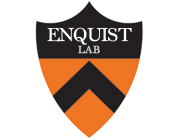Proteomic characterization of pseudorabies virus extracellular virions
Type
Pseudorabies virus (PRV), a member of the Alphaherpesvirinae, has a complex multilayered extracellular virion that is structurally conserved among other herpesviruses. PRV virions contain a double-stranded DNA genome within a proteinaceous capsid surrounded by the tegument, a layer of viral and cellular proteins. The envelope layer, which encloses the capsid and tegument, contains viral transmembrane proteins anchored in a phospholipid bilayer. The viral and host proteins contained within virions execute important functions during viral spread and pathogenesis, but a detailed understanding of the composition of PRV virions has been lacking. In this report, we present the first comprehensive proteomic characterization of purified PRV virions by mass spectrometry using two complementary approaches. To exclude proteins present in the extracellular medium that may nonspecifically associate with virions, we also analyzed virions treated with proteinase K and samples prepared from mock-infected cells. Overall, we identified 47 viral proteins associated with PRV virions, 40 of which were previously localized to the capsid, tegument, and envelope layers using traditional biochemical approaches. Additionally, we identified seven viral proteins that were previously undetected in virions, including pUL8, pUL20, pUL32, pUL40 (RR2), pUL42, pUL50 (dUTPase), and Rsp40/ICP22. Furthermore, although we did not enrich for posttranslational modifications, we detected phosphorylation of four virion proteins: pUL26, pUL36, pUL46, and pUL48. Finally, we identified 48 host proteins associated with PRV virions, many of which have known functions in important cellular pathways such as intracellular signaling, mRNA translation and processing, cytoskeletal dynamics, and membrane organization. This analysis extends previous work aimed at determining the composition of herpesvirus virions and provides novel insights critical for understanding the mechanisms underlying PRV entry, assembly, egress, spread, and pathogenesis.

